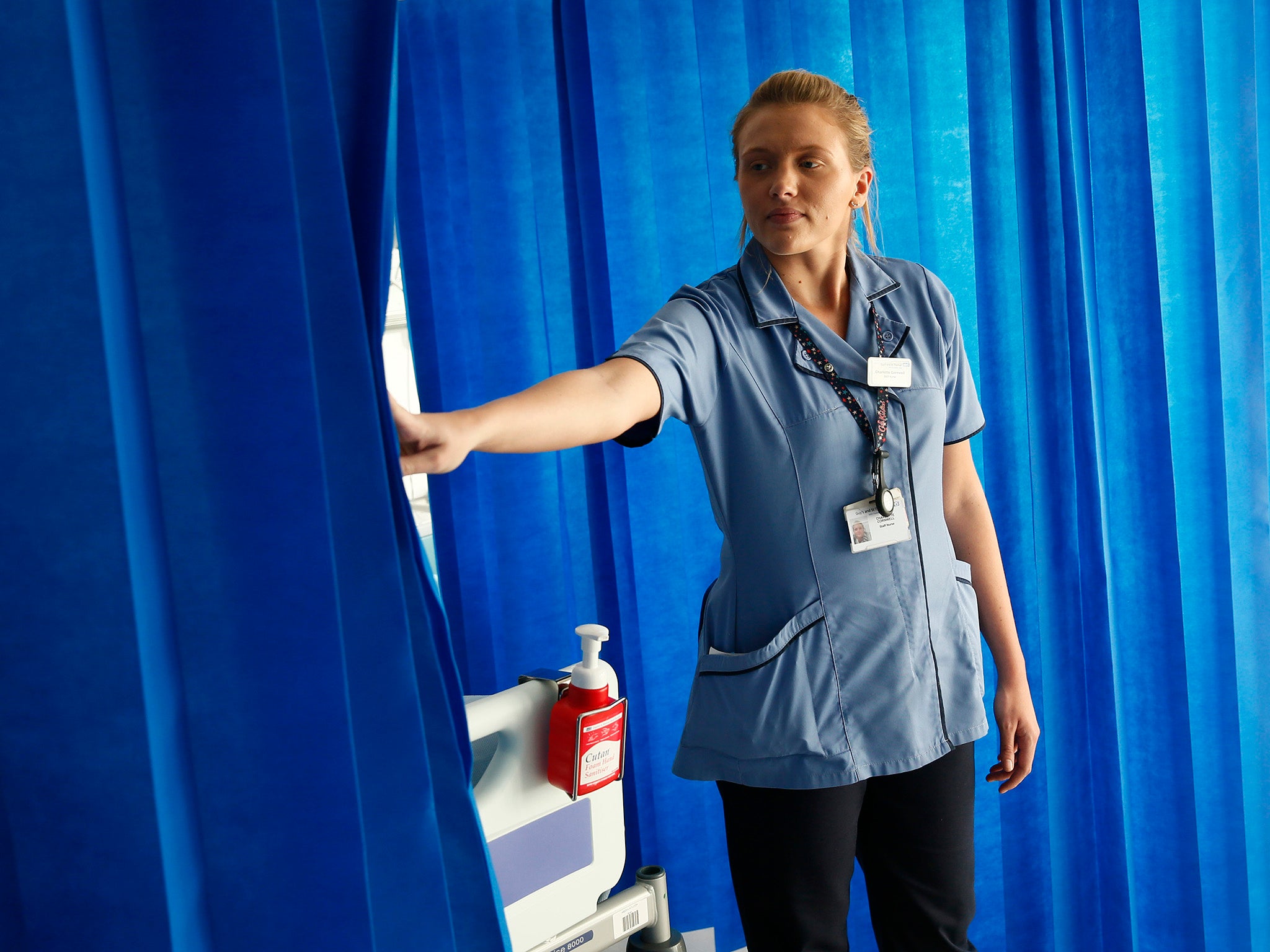Government must change plans to let hospitals investigate own whistleblowing cases, MP say
Whistleblowing investigations body sorely needed to prevent 12,000 avoidable hospital deaths every year but it must be independent, says committee

Your support helps us to tell the story
From reproductive rights to climate change to Big Tech, The Independent is on the ground when the story is developing. Whether it's investigating the financials of Elon Musk's pro-Trump PAC or producing our latest documentary, 'The A Word', which shines a light on the American women fighting for reproductive rights, we know how important it is to parse out the facts from the messaging.
At such a critical moment in US history, we need reporters on the ground. Your donation allows us to keep sending journalists to speak to both sides of the story.
The Independent is trusted by Americans across the entire political spectrum. And unlike many other quality news outlets, we choose not to lock Americans out of our reporting and analysis with paywalls. We believe quality journalism should be available to everyone, paid for by those who can afford it.
Your support makes all the difference.Government plans for a new NHS whistleblowing service have come in for criticism from MPs over “conflict of interest” concerns about letting NHS hospitals investigate themselves.
The introduction of a statutorily independent Health Service Safety Investigations Body (HSSIB) to investigate cases of compromised patient safety was supported by a joint Lords and Commons committee.
But allowing the HSSIB to accredit NHS trusts and foundation trusts run their run their own internal investigations was a step too far, the committee said.
The concerns come weeks after a report revealed up to 650 people had their lives cut short by lethal opiate prescribing at Gosport War Memorial Hospital, where staff and patient concerns went unheeded for decades.
“The committee considers this idea to be wholly misconceived,” the committee’s chair and backbench Conservative MP Sir Bernard Jenkin said.
“It represents too great a conflict of interest for the accredited trusts, compromises HSSIB’s independence from the system it is investigating and would risk damaging confidence in the ‘safe space’ concept itself.
“To win the confidence of patients, healthcare practitioners and other bodies with responsibility for patient safety, HSSIB had to be, and be seen to be, independent of existing healthcare structures, including the Department of Health and Social Care.”
It also said that proposals did not go far enough to protect and investigate concerns from whistleblowers in the private sector, and this must also be addressed.
With an estimated 12,000 avoidable hospital deaths every year, the committee said change is clearly needed for the benefit of patients and staff.
Previous major public inquiries revealed a system “slow to detect and learn” and, in some cases, “designed to protect clinical staff and hospitals rather than discover the truth”, cautioned the report.
Committee members said creating a safe space within the HSSIB was “crucial” to changing this, so the body will operate on a closed doors model and make recommendations for the whole NHS and not just the incident under investigation.
The report said: “When serious incidents take place patients have a right to find out what went wrong and staff need to feel that they can be open without being blamed or made a scapegoat.
“Far from restricting patients from finding out what happened to them, we believe that the ‘safe space’ will help HSSIB to establish facts and identify the underlying causes of the most serious incidents that take place each year.”
Dr Robert Harwood, chair of the British Medical Association’s consultants committee welcomed the issues flagged by MPs.
“When mistakes occur in the medical environment, the results can be tragic,” he said. “However, if we as doctors, and the health service as a whole, are to learn from such mistakes and stop them happening again, staff must feel able to report and reflect openly.
“We do have concerns with some parts of the draft bill,” he added. “Namely, we believe that private healthcare should be held to the same high standards as NHS services and included within the remit of the HSSIB.”
A spokesperson for the Department of Health and Social Care said: “We want to make the NHS the safest healthcare system in the world and welcome the committee’s recognition of our efforts to do this through this landmark draft bill.
“We will now consider the recommendations carefully before responding in the autumn.”
Additional reporting by PA
Join our commenting forum
Join thought-provoking conversations, follow other Independent readers and see their replies
Comments